432 Resources
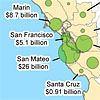
California Coastal Areas and Infrastructure Vulnerable to Flooding and Erosion
June 5, 2013 | publication
Downloadable PDF maps from our study that allow you to visualize the impacts of sea level rise on the California Coast.
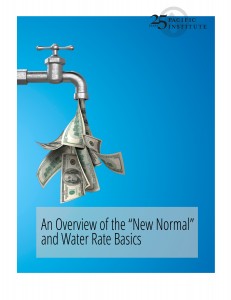
An Overview of the “New Normal” and Water Rate Basics
June 5, 2013 | publication
In the context of what is referred to as “the new normal”-- increasing costs to provide safe and reliable water supply amidst decreasing demand -- water service providers are facing new challenges in forecasting rates and preparing for future water demand.
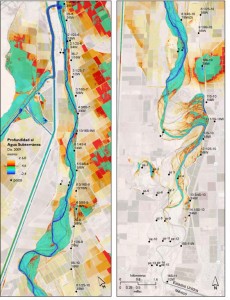
Dinámica del Agua Subterránea en el Tramo Limítrofe del Río Colorado
May 23, 2013 | publication
El Río Colorado, derivado y canalizado, así como intensivamente controlado, sólo en raras ocasiones (<10 por ciento de los días) lleva suficiente agua para fluir al menos 32 km más allá de la Presa Morelos, la última presa sobre el río, cerca de la frontera California/Arizona/Baja California.
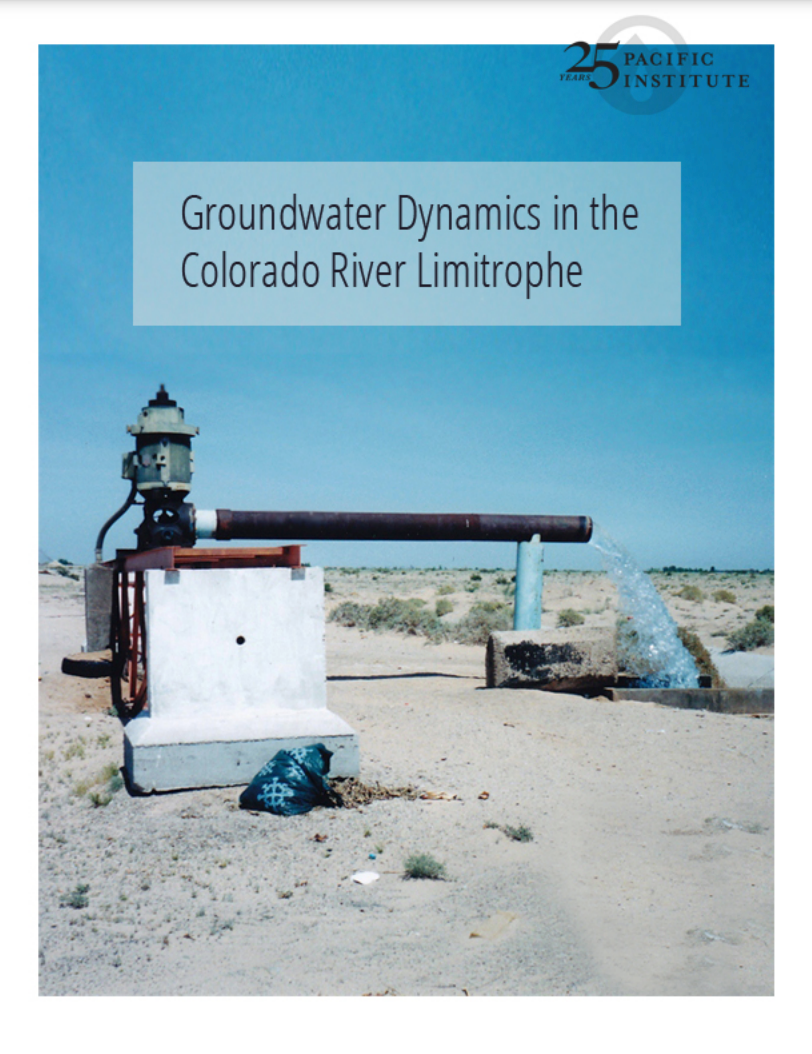
Groundwater Dynamics in the Colorado River Limitrophe
May 23, 2013 | publication
The Colorado River, diverted and channelized and intensively managed, only rarely has enough water to flow even 20 miles past Morelos Dam, the last dam on the river, near the California/Arizona/Baja California border.
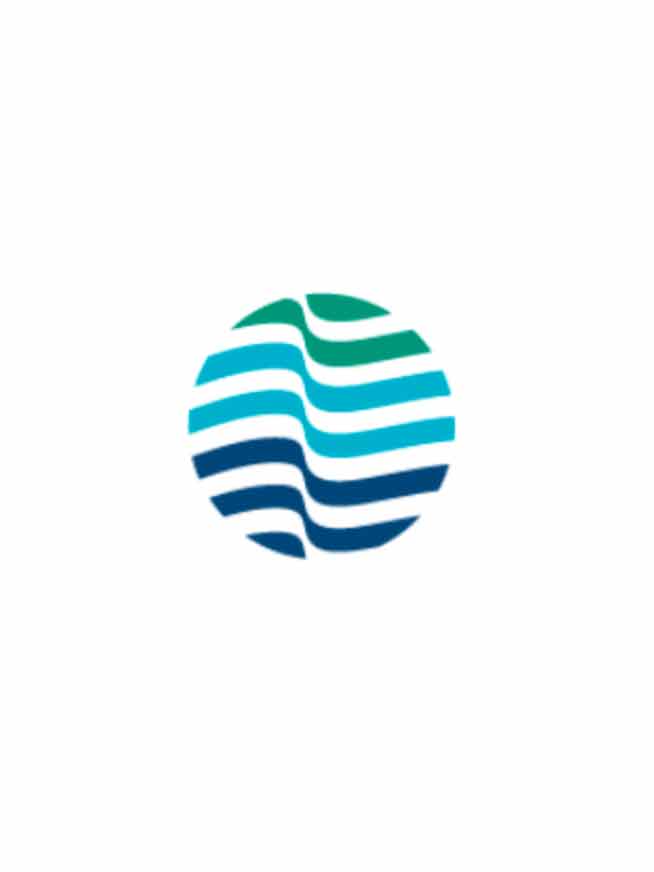
Testimony of Dr. Peter H. Gleick Before the California Assembly Select Committee on Sea Level Rise and the California Economy
May 15, 2013 | publication
This document provides the full testimony of Dr. Peter H. Gleick before the California Assembly Select Committee on Sea Level Rise and the California Economy.
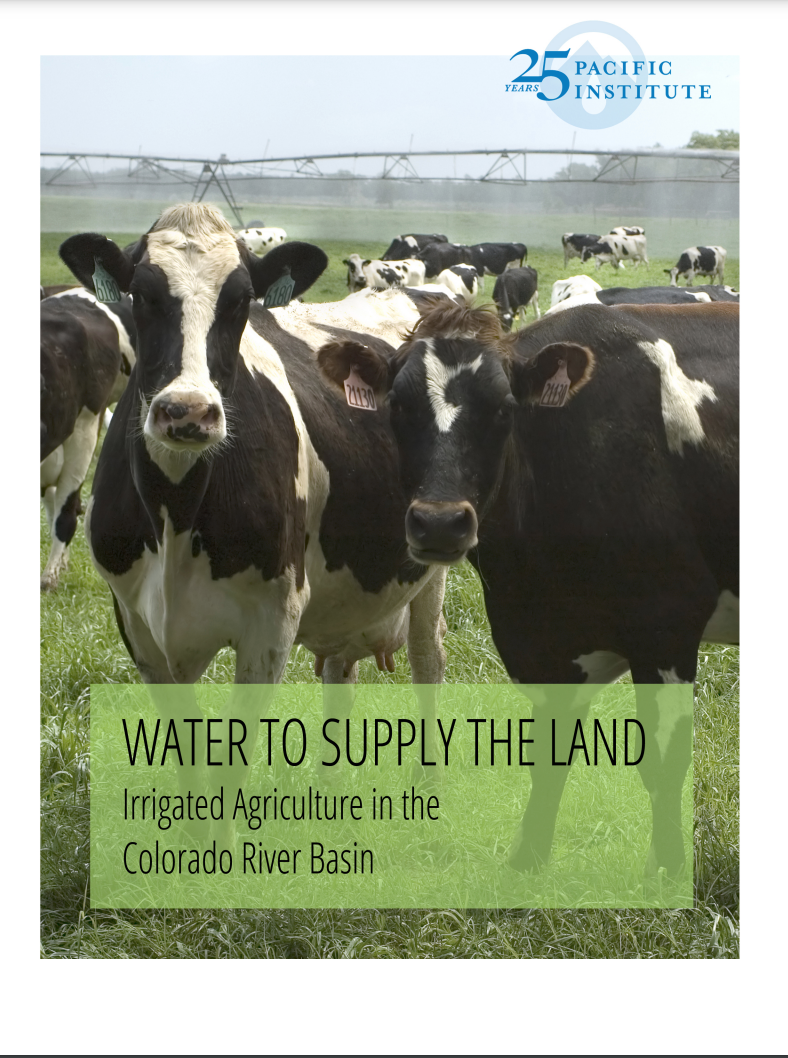
Water to Supply the Land: Irrigated Agriculture in the Colorado River Basin
May 9, 2013 | publication
Water is scarce in the Colorado River Basin, and the effects of climate change are straining the overspent water supply.
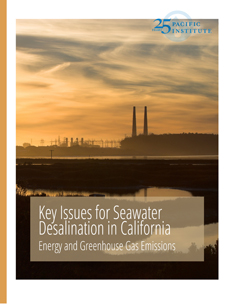
Key Issues in Seawater Desalination in California: Energy and Greenhouse Gas Emissions
May 1, 2013 | publication
California’s water supply is vulnerable to seasonal extremes that are exacerbated by the effects of climate change. Seawater desalination is a reliable source of water, which can be especially valuable during a drought.
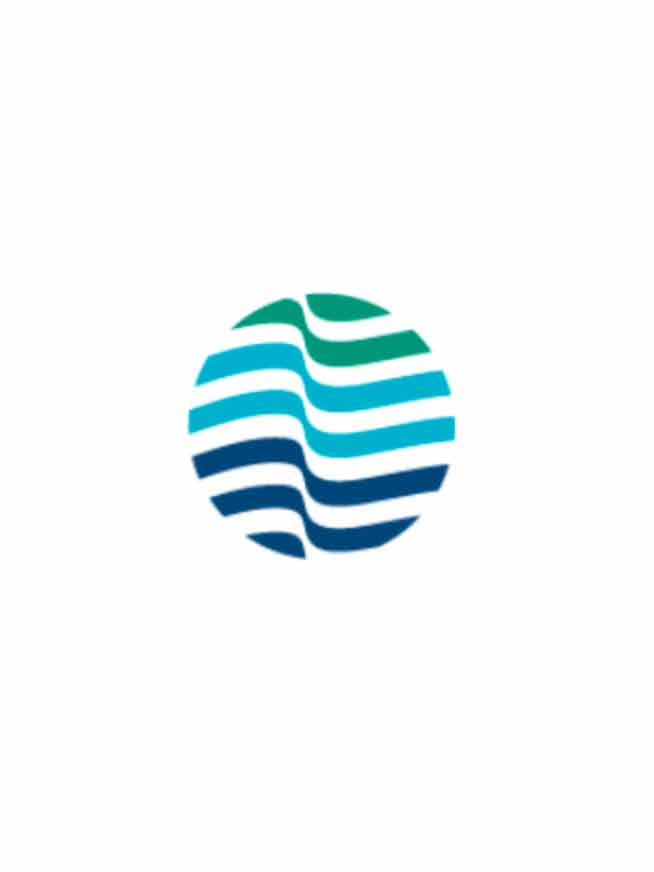
Community Resilience Fact Sheets Help Communities Prepare for Climate Change Impacts
April 24, 2013 | publication
As Hurricanes Sandy and Katrina have taught us, climate change is a global process with very localized impacts that can profoundly affect community health and quality of life. These localized impacts, ranging from extreme temperatures to rising sea levels, will disproportionately affect vulnerable populations such as the elderly, renters, low-income residents, limited English speakers, those with pre-existing medical conditions, and those without health or home insurance.

Climate Change Survivor Workbook with Games
April 24, 2013 | publication
Oakland residents can take steps to protect their communities in the face of climate change impacts.
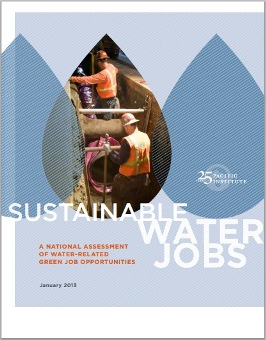
Sustainable Water Jobs: A National Assessment of Water-Related Green Job Opportunities
February 14, 2013 | publication
This comprehensive study finds that investments to increase efficient water use and reuse will both address growing problems associated with drought, flooding, and contamination, and simultaneously create jobs in a wide range of professions.
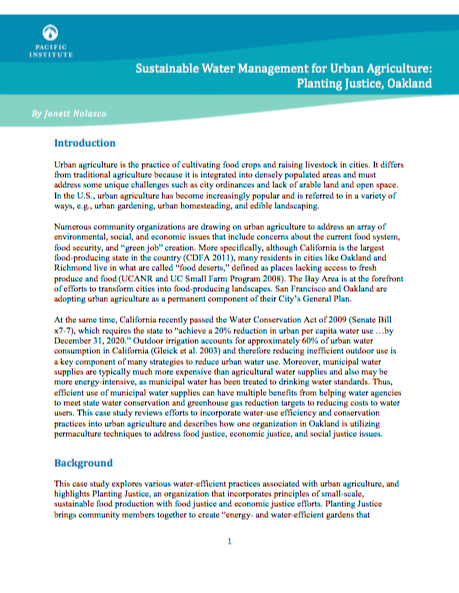
Sustainable Water Management for Urban Agriculture: Planting Justice, Oakland
January 30, 2013 | publication
The food justice movement has deep roots in the San Francisco Bay Area, where the organization Planting Justice is utilizing urban agriculture to address economic and social justice issues.
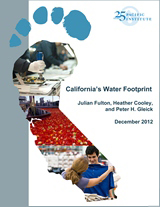
California’s Water Footprint
December 11, 2012 | publication
This report offers the first comprehensive assessment of California’s water footprint.
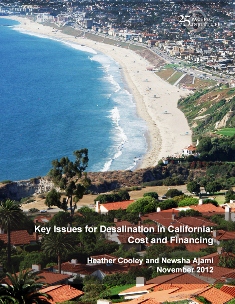
Key Issues in Seawater Desalination in California: Costs and Financing
November 27, 2012 | publication
Seawater desalination is gaining traction as a potential solution to water supply challenges in California, but economics – specifically, the cost of the water produced and the complex financial arrangements needed to develop a project – will ultimately determine the success and extent of this technology.
Sustainability Standards and Public Governance
November 26, 2012 | publication
An emerging theme of the framing project from its inception in 2009 was the growing awareness of the significance and complexity of the interactions between voluntary, non-governmental sustainability standards and national and international governance, raising fundamental questions about standards development, use, legitimacy and sustainability.
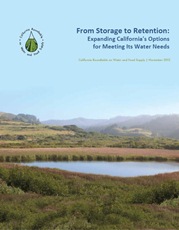
From Storage to Retention: Expanding California’s Options for Meeting its Water Needs
November 11, 2012 | publication
California’s ability to grow its wealth of specialty crops depends on retaining and storing water from the state's wet season for use during the long, dry summer season.
Page 14 of 29
From the Blog
- Dec 16, 2025
- Colorado River Deadlines & Incentives
- Dec 02, 2025
- A Year-End Conversation with Jason Morrison
- Nov 13, 2025
- Pacific Institute Convenes Leaders to Accelerate Corporate Action on Water Resilience in California
- Nov 03, 2025
- Air Pollution and Health in the Coachella Valley
- Oct 24, 2025
- Building Momentum for Corporate Water Stewardship: CEO Water Mandate and Water Resilience Coalition Participation at New York Climate Week and UN General Assembly 80


